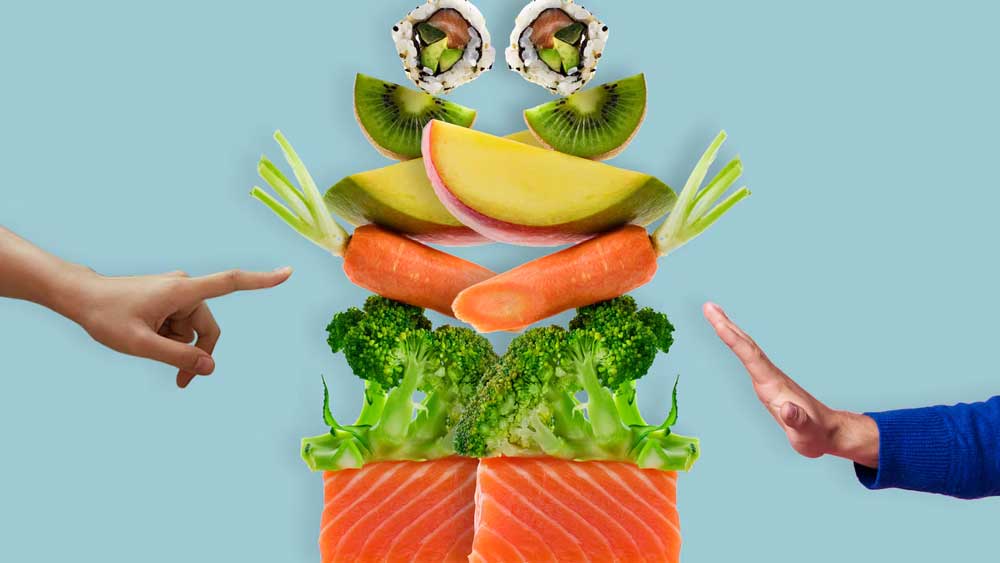The internet, my family doctor, gym trainers, fitness enthusiasts (friends and colleagues) have been constantly telling me that diet plays a crucial role in keeping an individual fit and healthy. Exercise is simply the cherry on top of the cake that complements your diet and helps you stay active and energetic throughout the day.
I had never paid heed to my diet and was in denial. I felt that I’d worked out so much that I could eat anything I wanted and that it could be compensated via exercise the next day. Even if I controlled my diet, it would last barely for a week or so, and never over the weekend. Looking back, I can see how wrong I was in my perceptions of dieting and exercise in weight loss. And I’m sure I’m not the only one!
Thankfully, dietician Priyanka Lulla helps us understand where we have been going wrong with our diets. She provides clarity on the information available online, separating fact from fiction.

Most diets fail as soon as they begin due to several interconnected factors. One of the primary reasons is the ‘all-or-nothing’ mentality that many people adopt when they begin to diet. Dieting is often viewed as a short-term, restrictive process, leading to dichotomous thinking where individuals believe they must strictly adhere to rigid rules. Any deviation, even a minor one, triggers disinhibited eating, resulting in binge episodes. This cycle of strict adherence followed by overeating is a significant barrier to long-term success.
Additionally, many diets are promoted as quick fixes, often rooted in extreme, crash-based approaches that promise rapid results. These approaches, frequently seen on social media, can create conflicting messages about food and weight loss, leading to confusion and frustration. The unrealistic expectations set by these diets often cause body dissatisfaction and low self-esteem, particularly when the desire to lose weight is driven by appearance-related goals. These goals are typically short-term, like preparing for an event, which diminishes motivation once the objective is achieved. Once the diet is no longer necessary for that specific event, old habits return, often leading to weight regain and the abandonment of the diet altogether.
Moreover, dieting can increase preoccupation with food, which may lead to heightened cravings and attempts to suppress thoughts about food. People may avoid certain foods or social situations where they might be tempted to overeat. This preoccupation, coupled with the disinhibition triggered by strict dieting rules, often leads to binge eating where individuals lose control and eat beyond their comfort levels.
The failure to adhere to a diet can significantly affect one's self-perception. Many people tie their self-esteem to their ability to stick to a diet, and when they fail to do so, it leads to negative feelings about themselves. This pattern can create a cycle of guilt and shame, further reinforcing unhealthy relationships with food and dieting.
Ultimately, successful dieting should not be about short-term fixes or deprivation; it needs to be about sustainable, long-term lifestyle changes. A more holistic approach, one that incorporates mental, social, and emotional aspects of eating and weight management, is key to achieving lasting results. Dieting should be viewed as a journey toward healthier living, not a temporary phase focused on quick weight loss. Incorporating these elements into a weight management strategy can help break the cycle of dieting and binge eating, fostering a healthier relationship with food and one's body.
Signs That Your Diet Is Failing
Our bodies are excellent communicators, constantly sending us signals when something isn’t quite right. Yet, many of us overlook these signs when it comes to dieting. Priyanka points out to the common indicators that your diet might be failing you.

Constant Hunger
If you find yourself feeling hungry more often than usual, it could mean that your diet is lacking in essential nutrients like protein and fibre. According to recent research, the feeling of deprivation can trigger short-term cravings, leading individuals to prioritise immediate gratification over long-term goals like weight loss. Protein helps curb hunger, and fibre promotes satiety. Without adequate amounts of these, you are more likely to experience frequent hunger pangs, leading to overeating and indulging in calorie-dense foods. Moreover, restrictive diets often exacerbate cravings, making it difficult to stick to a plan.
Lethargy
A well-balanced diet should never leave you feeling sluggish or weak. If you're constantly feeling drained, this could be a sign that your diet is deficient in complex carbohydrates and other vitamins especially B Vitamins. These nutrients provide sustained energy. Diets that are too restrictive can impair energy levels and contribute to fatigue, making it more difficult to stick to the diet.
Micro-Nutrient Deficiencies
Long-term crash dieting or depriving your body of essential nutrients can lead to micronutrient deficiencies. This can be observed as various physical symptoms, including hair loss, brittle nails, poor skin health, or more severe health issues. When dieting is too restrictive, it can trigger a cycle of goal conflict between long-term health goals and short-term desires for food. A balanced diet ensures that your body gets the vitamins and minerals it needs to function optimally, and it’s important to focus on variety, not elimination.

Losing Motivation
At the start of any diet, motivation is typically high. However, if you begin to feel demotivated, frustrated, or emotionally drained, it could indicate that your diet is unsustainable. According to research, dieting often fails when dieters focus on appearance-related goals without considering the mental and emotional challenges of maintaining the diet. If your diet feels like a chore, rather than a lifestyle change, it’s time to reassess your approach. Motivation often wanes when the diet feels too restrictive or unenjoyable.

Frequent Cravings And Mental Preoccupation With Food
A common sign that your diet might be failing is an increase in food cravings or thoughts that are preoccupation with eating. When people restrict certain foods, they may experience heightened cravings, which can eventually lead to disinhibited eating behaviours, such as binge eating. The body’s natural drive to seek pleasure from food can overwhelm cognitive control, leading to lapses in dieting and a return to unhealthy eating patterns.
‘All-or-Nothing’ Attitude
If your approach to dieting is overly rigid with a strict set of rules that you feel you must follow without exception, this could be a warning sign that your diet is unsustainable. A dichotomous ‘all-or-nothing’ thinking is a common response to restrictive diets. When individuals deviate from their rigid rules, they may feel a sense of failure, leading to overeating and binge eating behaviours. A more flexible approach where occasional indulgences are allowed helps maintain a healthy relationship with food.

Feeling Of Decreased Self-Worth
Another common sign that a diet is failing is if you begin to feel that your self-worth is tied to your ability to adhere to the diet. Failing to stick to a diet can lead to decreased self-efficacy, or the belief in one's ability to control eating behaviour. This feeling of failure can exacerbate negative emotions and make it harder to maintain long-term health goals. A balanced, sustainable diet should be part of a lifestyle, not something that makes you feel guilty for enjoying a treat every once in a while.

Short-Term Mindset
Many diets fail because they are rooted in unrealistic short-term goals like losing weight quickly for an event. Dieting is often viewed as a temporary solution rather than a lifestyle change. The intense focus on short-term results such as rapid weight loss often leads to unsustainable practices and eventual weight regain once the temporary goal has been met.
In essence, a truly nourishing diet should leave you feeling energised, satisfied, and healthy. If you're constantly fighting hunger or feeling fatigued, it might be time to reassess your approach and focus on balance, not deprivation.